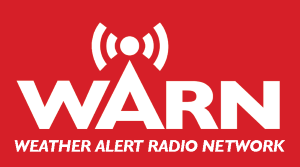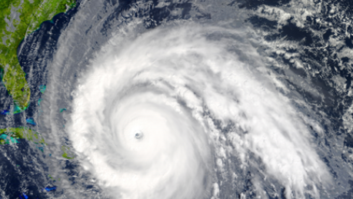 The FCC has ruled against an organization that filed 213 applications for LPFM construction permits in hopes of creating a coastal network for public safety.
The FCC has ruled against an organization that filed 213 applications for LPFM construction permits in hopes of creating a coastal network for public safety.
The Weather Alert Radio Network says it will ask the commission to reconsider.
WARN, based in Florida, was incorporated last year as a not-for-profit by Robert Connelly and two of his colleagues at the Audio Ventures Group, an audio strategy and consulting firm. WARN applied for LPFM CPs in Alabama, Florida, Georgia, Louisiana, Mississippi, North Carolina, South Carolina, Texas, Virginia and the Virgin Islands.
WARN proposes a “public safety radio service” consisting of a rural FM broadcast network, focused on early warning and extreme weather preparedness, from Texas across the Gulf Coast and up the East Coast through Virginia. It hopes to “provide current local weather information, preparedness information and local resource information 24 hours per day and seven days per week.”
While the FCC generally prohibits an entity from holding an interest in more than one LPFM station, WARN is trying to take advantage of an exception that allows not-for-profits and governmental entities with a public safety purpose to be granted multiple licenses if one of the applications is submitted as a priority application and the rest do not face a mutually exclusive challenge.
WARN told the commission it had reached out to various public safety organizations, “each of whom holds jurisdiction as a local, county, state or national government entity.” The organizations “have agreed to work with [WARN] and have received information and correspondence regarding the programming and proposed application plans of [WARN’s] proposed LPFM stations in that state.”
But the commission last week dismissed all of WARN’s applications.
In a letter to WARN, Albert Shuldiner, chief of the Media Bureau’s Audio Division, said they were patently defective.
“We find that WARN is not eligible to hold an LPFM license because it will not provide a public safety radio service and is not community-based with respect to its proposed LPFM stations. … (WARN) did not submit requests for waiver of those requirements with the application.”
[Read Shuldiner’s letter and the list of markets where WARN proposed service.]
Founder Rob Connelly told Radio World that WARN will file a petition for reconsideration.
“The FCC left a lot of room in that letter, specifically that we did not violate any rule sections that could not be amended and that they could only not grant based on eligibility which lacked a waiver.”
WARN also will argue that “extreme weather preparedness in rural coastal areas should be an allowable public safety purpose of LPFM,” Connelly said.
He said WARN originally filed 213 applications at 105 sites, with many of them specified at the same location in order to protect against dismissal from mutually exclusive applications.
Upon release of the application lists, he said WARN voluntarily dismissed the “extra” applications that were no longer needed to create its network and whittled the number down to one per site.
Connelly agrees that WARN did not submit for a waiver. “But in all of our email and phone conversations prior to filing, we felt that both WARN and the FCC knew this was uncharted territory and it would be bumpy. We cannot imagine a scenario where our applications are actually denied, as it is spectrum no one applied for and if we don’t use it for this public service, no one will, possibly ever,” Connelly wrote.
WARN believes there is a lack of clarity or definition about exactly who is eligible for the LPFM service. “WARN has proposed a use for LPFM that was not originally envisioned in the rules and throughout discussions.”
Connelly thinks the commission will look favorably on a waiver once it receives documentation of WARN’s relationships, agreements and collaborations with the government public safety agencies in its proposed footprint.
Connelly is creator of a podcast called “Extreme Weather Update” which was uploaded with information from the National Hurricane Center and embedded into the digital editions of major coastal newspapers, according to a news release from WARN. It stated that the information was downloaded and played upwards of a million times per storm across these publications.
“WARN’s LPFM applications would further that public safety purpose by providing 100+ rural non-profit signals to further supply these updated, lifesaving forecasts, emergency preparedness information and crucial after-storm updates from FEMA to rural coastal areas where storms land most often,” the company stated.
Connelly says WARN has secured financing for the project and would lease tower space at sites owned by Vertical Bridge.
A demo of a WARN forecast on the Audio Ventures website, using generative AI technology to create a synthetic voice, “proves the concept and functionality of distributing up-to-date forecasts from the National Weather Service and place them into an accessible podcast format and distribute them through this network using our custom Podcast Download Manager Software,” Connelly said.
WARN says the software “will ping an audio RSS feed, download a new episode, convert it (MP3/WAV), trim it, add gain normalization and overwrite the old file making it automatically updatable for unattended operation” of the LPFM.








